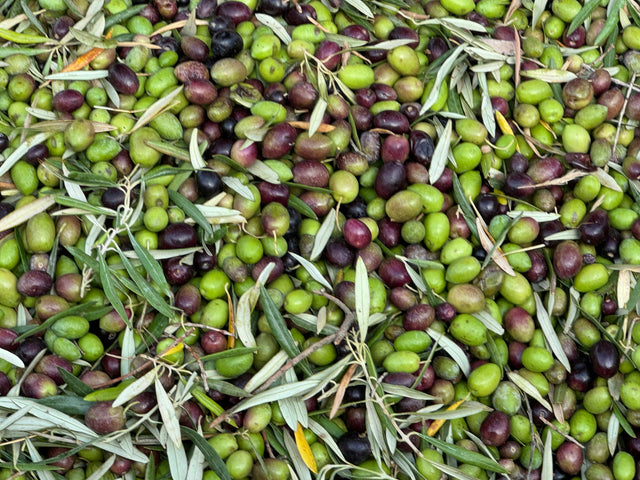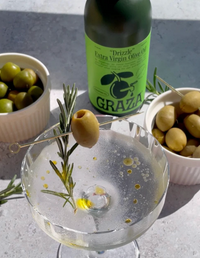
Olive Oil vs Canola Oil: Your Questions Answered
Cooking oils are essential to the kitchen, but choosing the right one can be a bit of a minefield. With everything from corn oil to avocado oil, the list of oils available in the grocery store is not only extensive but confusing as well. Two of the most popular oils—canola oil and olive oil—often steal the spotlight in terms of grocery store shelf space and recipe call-fors. If you have been wondering which everyday cooking oil might be the best for you, here is the deep dive you've been waiting for!
Olive Oil 101
Olive oil, particularly EVOO, didn't earn the name liquid gold for nothing. Made by pressing olives, EVOO is unrefined, which means it retains most of its natural nutrients and antioxidants. The first cold press, is as pure and fresh as you can get.
The Standout Benefits of Olive Oil
Heart Health: Loaded with monounsaturated fats, olive oil helps lower bad LDL cholesterol and increase good HDL cholesterol. (you can learn more about olive oil and cholesterol here!)
Antioxidant-Rich: EVOO boasts polyphenols, which are antioxidants that keep inflammation at bay and may even have anti-aging benefits.
Flavor Factor: Olive oil actually tastes good. Its grassy and fruity notes can elevate a dish from 'meh' to masterpiece!
Versatile in Cooking: With a smoke point around 420F, EVOO works for most everyday recipes. Plus it's an amazing finishing oil on salads, pastas, popcorn, and ice cream!
So olive oil has a lot going for it. But what about canola oil?
Canola Oil 101
Canola oil is made from the seeds of the canola plant and has become a staple in kitchens largely because it's neutral in taste and more affordable than many other oils. It has its place, in high heat neutral frying (400-450F) but does not measure up to EVOO's health benefits.
The Facts on Canola Oil:
The Processed Choice: To produce canola oil, manufacturers often use chemical extraction, bleaching, and deodorizing—processes that can strip it of nutrients and add weird stuff you don't really want in your food.
Higher in Omega-6: Canola oil is higher in omega-6 fatty acids than olive oil. While omega-6 is an essential fatty acid, too much of it (without enough omega-3 to balance) can lead to inflammation over time.
If you're simply looking for a high-heat oil with a neutral taste for occasional frying, canola oil can work. But for daily use and health benefits, EVOO has a clear edge.
How to Use Each Oil: When EVOO is Best (and When Canola Can Help Out)
While EVOO is the undisputed king of healthy oils, there are times when canola oil can be useful. Here's a quick breakdown:
Use Olive Oil or EVOO for:
Salad Dressings and Dips: EVOO adds flavor and nutrient density.
Roasting Veggies: Low to medium heat brings out the best in olive oil.
Sautéing and Light Frying: EVOO's smoke point can handle heat and adds a rich flavor.
Use Canola Oil for:
High-heat cooking: Canola's high smoke point makes it suitable for deep-frying or stir-frying.
Baking: Neutral-tasting, canola can be used in cakes, muffins, and breads where you don't want the depth of the olive flavor.
The Bottom Line
If you’re choosing one oil for its health benefits, flavor, and versatility, olive oil—especially extra virgin—is hands-down the winner. Less processing means more natural nutrients and antioxidants in every flavor. Canola has its place in certain dishes and techniques, but it lacks the flavor, antioxidants, and heart-health perks that EVOO brings. So next time you’re reaching for a bottle, give EVOO the love it deserves. Because not all oils are created equal, and your tastebuds (and heart) know it.

















